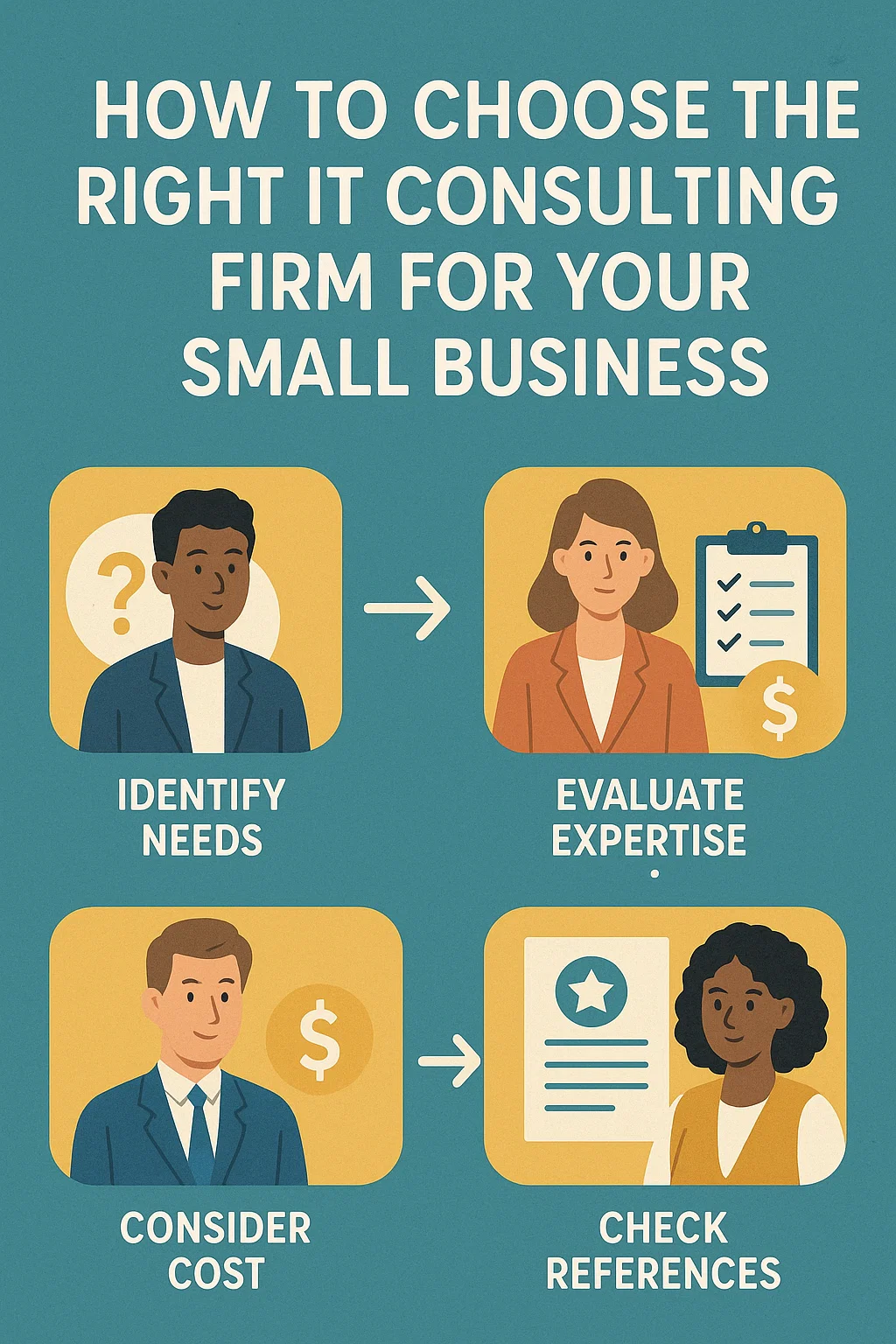Selecting the right IT consulting firm can feel overwhelming. Between industry jargon, endless sales pitches, and bold promises, many business owners don’t know where to start. But the truth is, finding the right partner doesn’t have to be confusing. With a clear plan, you can identify a firm that not only understands your business but also helps your company grow and stay secure.
This guide breaks down the key factors you should consider before hiring an IT consultant for your small to medium-sized business (SMB).
Step 1: Identify Your IT Needs
Before you begin reaching out to firms, take time to assess your current IT environment. Ask yourself:
Are my systems running too slowly?
Do I experience frequent crashes or downtime?
Am I concerned about cybersecurity threats or data breaches?
Do I need help migrating to the cloud?
Clearly identifying your pain points will make it much easier to select a consultant with the right expertise. Think of it like visiting a doctor—you’ll get the best treatment if you can describe your exact symptoms. The more specific you are, the better your consultant can provide tailored solutions.
Step 2: Research and Evaluate Firms
Once you know what you need, start researching potential IT consulting firms. Don’t be swayed by flashy websites or generic promises. Instead, focus on proven results and client satisfaction.
Check reviews and testimonials on sites like Clutch or G2.
Look for case studies or client success stories.
See if they have experience in your specific industry.
A reliable consulting firm will have happy clients who are willing to vouch for them. Do your homework upfront, and you’ll save yourself frustration (and money) later.
Step 3: Look for Relevant Expertise
Not every IT consultant is the same. Some specialize in cybersecurity, others in cloud computing, and some in IT infrastructure. Choosing a firm with the right specialization is critical.
If you’re worried about data security, pick a firm with cybersecurity expertise.
If you’re planning a cloud migration, look for consultants with proven cloud experience.
If you want ongoing IT support, select a firm that offers managed services.
Hiring a consultant without the right specialization is like hiring a plumber to rewire your home—it just doesn’t work.
Step 4: Prioritize Communication and Collaboration
IT consulting isn’t just about fixing problems; it’s about building a partnership. Look for a consultant who communicates clearly and explains technical concepts in plain language.
A great consultant will:
Be responsive and proactive.
Take the time to understand your business goals.
Explain recommendations in a way you understand—without jargon.
Collaborate with your team instead of dictating solutions.
Strong communication is the foundation of a successful consulting relationship.
Step 5: Balance Cost with Value
Price always matters, but don’t make the mistake of choosing the cheapest option. A low-cost consultant who delivers poor results will cost you more in the long run.
Instead, evaluate firms based on value and ROI (return on investment). Ask yourself:
What benefits will this consultant bring to my business?
Will their solutions reduce downtime, improve efficiency, or protect me from cyber threats?
Is the price fair for the expertise and results offered?
Think of it like buying a car: the cheapest option might not be the most reliable.
Step 6: Ask the Right Questions
Once you’ve narrowed down your list of potential firms, schedule interviews. Prepare a list of questions that will help you assess each candidate’s capabilities.
Here are some examples:
“Do you have experience working with businesses like mine?”
“What is your approach to cybersecurity and data protection?”
“How do you measure project success?”
“Can you provide references or case studies?”
Don’t shy away from tough questions—it’s your business on the line.
Step 7: Make the Final Decision
After you’ve compared your options, interviewed candidates, and reviewed their track records, it’s time to make your choice. Trust your instincts and select the firm that feels like the best fit for your business goals and culture.
Remember, you’re not just hiring an IT consultant—you’re forming a long-term partnership that can directly impact your company’s growth and security.
Final Thoughts
Choosing the right IT consulting firm for your SMB may seem intimidating, but with the right approach, it becomes a manageable process. By identifying your needs, researching firms, asking the right questions, and focusing on value, you’ll find a partner who can guide your business through the complex world of technology.
When done correctly, hiring the right IT consultant is one of the smartest investments you can make in your business.
Key Takeaways:
Define your IT challenges before searching for a firm.
Look for consultants with proven expertise in your problem areas.
Prioritize clear communication and responsiveness.
Choose value and ROI over the cheapest price.
Ask tough questions to evaluate fit.


